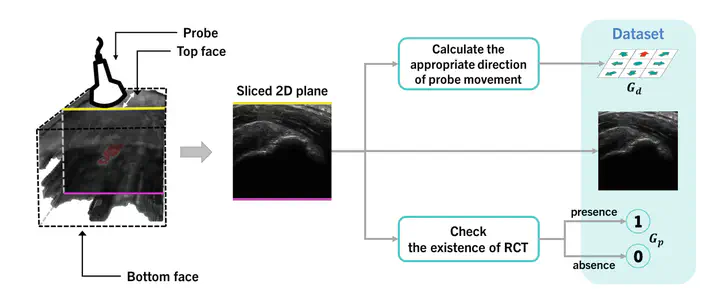USG-Net: Deep Learning-based Ultrasound Scanning-Guide for an Orthopedic Sonographer

초록
Ultrasound (US) imaging is widely used in the field of medicine. US images containing pathological information are essential for better diagnosis. However, it is challenging to obtain informative US images because of their anatomical complexity, which is significantly dependent on the expertise of the sonographer. Therefore, in this study, we propose a fully automatic scanning-guide algorithm that assists unskilled sonographers in acquiring informative US images by providing accurate directions of probe movement to search for target disease regions. The main contributions of this study are- (1) proposing a new scanning-guide task that searches for a rotator cuff tear (RCT) region using a deep learning-based algorithm, i.e., ultrasound scanning-guide network (USG-Net); (2) constructing a dataset to optimize the corresponding deep learning algorithm. Multidimensional US images collected from 80 patients with RCT were processed to optimize the scanning-guide algorithm which classified the existence of RCT. Furthermore, the algorithm provides accurate directions for the RCT, if it is not in the current frame. The experimental results demonstrate that the fully optimized scanning-guide algorithm offers accurate directions to localize a probe within target regions and helps to acquire informative US images.